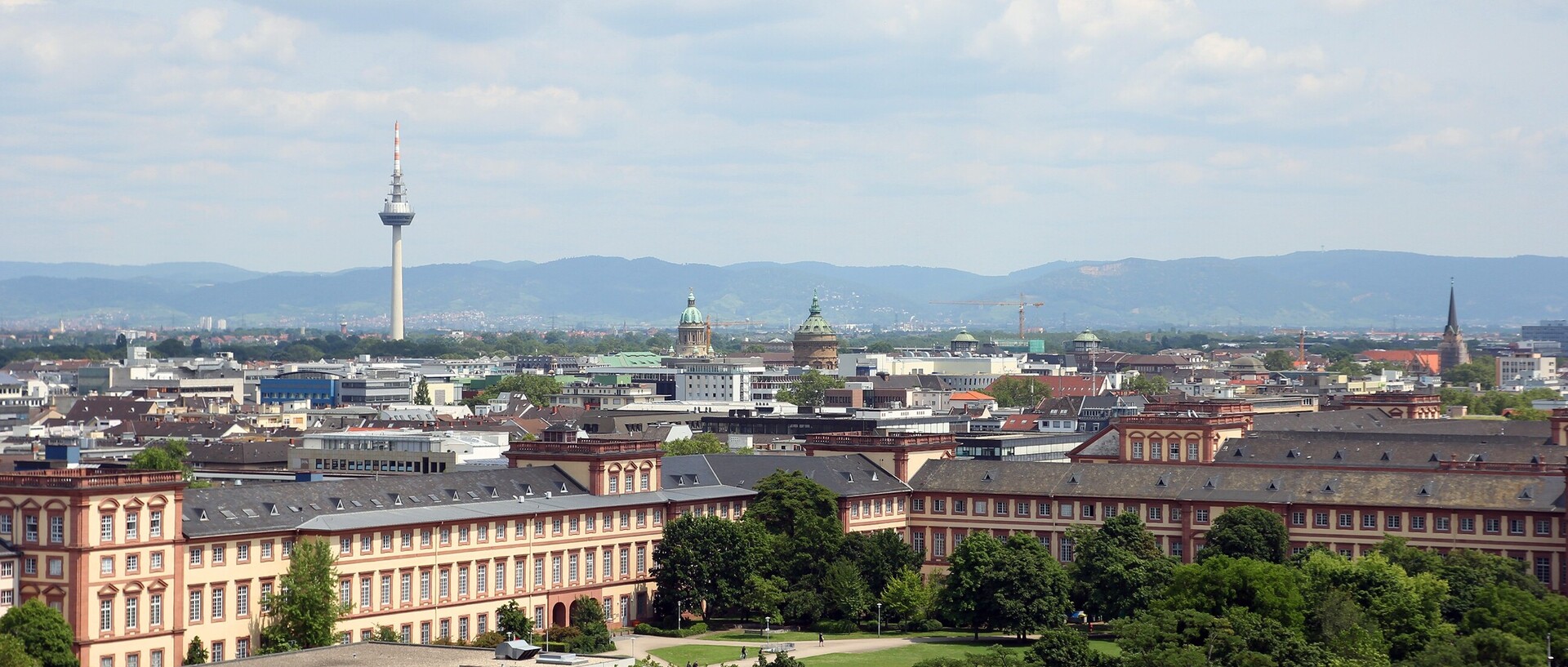Nine good reasons to study in Mannheim
One of the most beautiful universities in Germany

The university is located within the largest baroque palace, or Schloss, in Germany. The city center is symmetrically aligned with the Schloss, putting the lecture halls in the immediate vicinity of the city. For nature enthusiasts, the beautiful banks of the Rhine are just five minutes away. Around 1,050 scholars and 12,000 students enjoy the privilege of studying at an unparalleled location with a unique atmosphere.
Exciting student life

With around 320,000 citizens, Mannheim is a vibrant and diverse city that is known for its shopping areas, cultural attractions, excellent transport links and its beautiful baroque palace. The city has a broad music community and a varied night life, and is part of the Rhine-Neckar European metropolitan region which has a total of 2.3 million inhabitants. The region provides students with a range of things to do. At the university, they can sign up for a student organization and meet like-minded people, or get active in one of the many sports courses on offer. On top of all that, there is the legendary Schneckenhof-Party, which is organized by a different departmental student committee each week.
Mannheim is international

The University of Mannheim is part of a global network and is partnered with over 450 academic institutions around the world. This enables the university to offer more than 150 exchange programs to its students. Numerous scholars come from Europe and beyond, and this is reflected in our course selection. That is why there is a large number of elective modules at the Department of Economics which are taught in English, and some mandatory modules even feature parallel courses in German and English.
Low cost of living

In comparison to other cities, the cost of living, and especially the cost of rent, in Mannheim is relatively low. It is easy to find a suitable apartment, and in addition to the city center (the Quadrate), the districts of Lindenhof and Schwetzinger Vorstadt are very popular with students. If you have any questions, the Studierendenwerk Mannheim can help you with your accommodation search. It also manages modern student housing.
Relaxed atmosphere between teachers and students

Teachers are open to student suggestions. They can also help students with personal problems relating to their studies. Particularly during the third year, students can ask their teachers to help them to identify suitable occupations and to orient their studies to these jobs. In earlier semesters, the Department of Economics provides subject-specific academic advice to support its students.
Academic calendar compatible with institutions abroad

To facilitate international exchange, the University of Mannheim aligned its academic calendar with the academic year in English-speaking countries in 2007. For this reason, the academic year is divided into a spring semester (with lectures held between February and June) and a fall semester (with lectures held from September to December).
University supports exchange students

Before they arrive in Mannheim, exchange students are given detailed information on studying and living in the city. The International Office also supports students before and following their arrival by helping them to enroll and settle in at the university. Dr. Christiane Cischinsky can answer your questions on studying Economics in Mannheim.
Leading institution in the Economic and Social Sciences in Germany

Mannheim is not just home to the only Graduate School for the Economic and Social Sciences in Germany to be funded by the Excellence Initiative, numerous rankings and awards have also repeatedly confirmed the top quality of the research and teaching at the university of Mannheim.
Economics in Mannheim combines theory with practice

According to Immanuel Kant, there is nothing more practical than a good theory, and we agree. We therefore place great importance on thorough instruction in economic theories. To this end, Empirical Economics is addressed at an early stage, and the diverse experiences gained by our professors through acting as consultants and advisors on policy are reflected in the modules available on our program from the first semester onwards. Depending on the topic, students also work on a number of practice-oriented questions during elective modules, especially in the third year of study.
